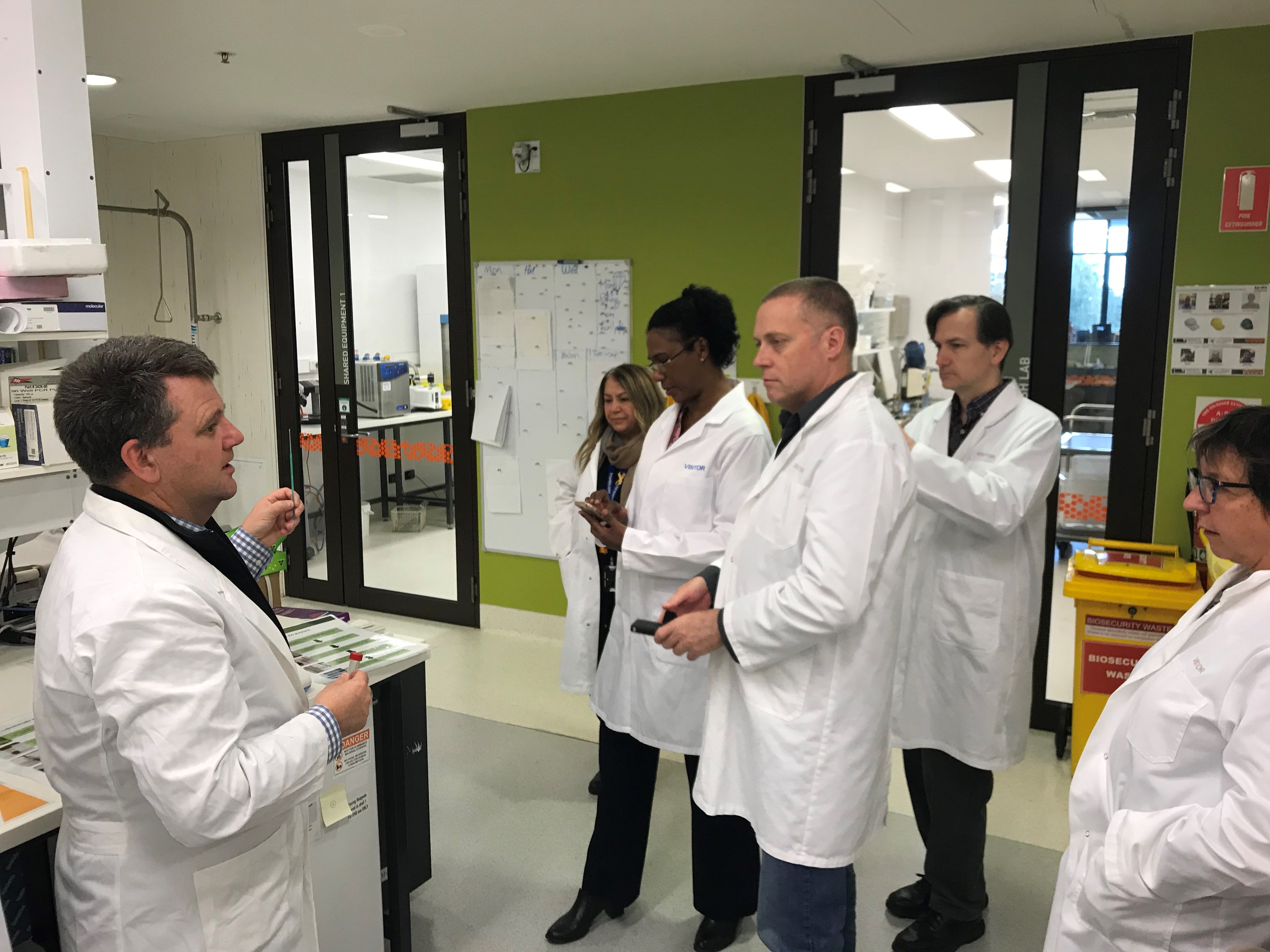Advancing on plant pests detection and identification: the 2019 meeting of the IPPC Technical Panel of Diagnostic Protocols
Posted on jeu, 15 Aoû 2019, 07:26

TPDP participants at the 2019 meeting in Melbourne, Australia
9 August 2019, Melbourne. The purpose of harmonized diagnostic protocols (DPs) is to support efficient phytosanitary measures in a wide range of circumstances and to enhance the mutual recognition of diagnostic results by National Plant Protection Organizations (NPPOs), which may also facilitate trade. Furthermore, these protocols aid the development of expertise and technical cooperation on a global scale.Tests in laboratory of plant pests are a key support for official inspections since, based on their results, accurate measures are decided and action taken by the NPPOs. However, taking in consideration the importance of the exchanges of plants and plant products amongst countries, it is necessary that these tests are carried out in the frame of international diagnostic protocols (DPs) adopted by the IPPC. The Technical Panel of Diagnostic Protocols (TPDP) of the IPPC met in Melbourne, Australia, from 5 to 9 August 2019 in that prospect. The meeting was organised by the IPPC Secretariat and hosted by AgriBio – Centre for Agri Bioscience.
Currently, while there are 29 DPs adopted, the TPDP has in its work programme the development of 18 DPs, either under process or just added as new topics. The TPDP discussed its work plan noting that new TPDP members are expected, as well as the establishment of new DP drafting groups to help with the development of the DPs. The TPDP noted the updates from relevant IPPC meetings and the request from the Commission on Phytosanitary Measures (CPM-14, 2019) to the Standards Committee (SC) and Implementation and Capacity Development Committee (IC) to conduct surveys on the utility of existing DPs using IRSS and to analyze means of developing DPs to identify areas of improvement to have greater amounts of DPs quicker and more flexible. For this, suggestions were made by the TPDP to a specific draft questionnaire that may support this activity.
In a longer term, the TPDP discussed the potential impact of the newly endorsed IPPC Strategic Framework 2020-2030 on its activities, especially in relation to the development agendas which mention DPs: Commodities and Pathways Standards, Strengthening Pest Outbreaks Alert and Response Systems, and Diagnostic Laboratory Network. The TPDP reflected also on the ways to shorten the duration of development of DPs and made proposals to the SC in that prospect, noting the need to ensure IPPC Secretariat resources. The full outcomes of the meeting and the TPDP work plan will be presented to the SC in May 2020.
About the Technical Panel on Diagnostic Protocols (TPDP):
The TPDP is formed by worldwide experts. It is in charge of developing international diagnostic protocols as annexes of ISPM 27 (Diagnostic Protocols for regulated pests). The main objective of TPDP is to provide proper and internationally recognized DPs to the contracting parties of the IPPC.
To learn more about the TPDP and see the meeting report, to be soon posted: https://www.ippc.int/en/core-activities/standards-setting/expert-drafting-groups/technical-panels/technical-panel-diagnostic-protocols/
 TPDP participants at the 2019 meeting ©FAO
TPDP participants at the 2019 meeting ©FAO
 TPDP participants at the AgriBio laboratories ©FAO
TPDP participants at the AgriBio laboratories ©FAO

